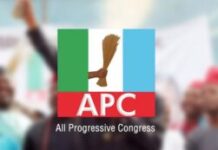The reports are coming in. And they betoken blue skies and clement weather for Nigeria’s economy. In November 2023, Morgan Stanley made a fetching prognosis on Nigeria’s economic health. The global financial services firm said President Bola Tinubu’s “policy reforms could spur economic growth and the rise of a mass consumer market, with potential opportunities in mobile banking and consumer goods” in Nigeria.
Earlier in August, S&P Global Ratings volte-faced its outlook on Nigeria, revising the previous negative outlook to stable. And just recently, Moody’s Investors Service raised Nigeria’s credit outlook from stable to positive. According to Moody’s, “these policy changes, and those potentially to come, have raised the prospects of a fiscal and external improvement in the country’s credit profile’’.
The premise of these reports has a common provenance in the policy initiatives of the Tinubu administration. On May 29, 2023, President Tinubu announced the immediate cessation of petrol subsidy. The decision was most judicious as Nigeria grappled with mounting national debts, desiccating revenue, haemorrhaging economy, corruption, and shadowy sectoral enterprise. The nation was spending as much as N400 billion every month to subsidise the petrol price and had racked up $6 billion in petrol-subsidy debts. The scheme was projected to have wolved over N11 trillion in eight years.
The petrol subsidy regime was clearly a Venus flytrap and tough decisions had to be made for the common good.
The Tinubu administration went further in its bold reforms with meticulous monetary policy prescriptions like the (ongoing) unification of foreign exchange rates and the lifting of foreign exchange restrictions on the importation of 43 items. The restrictions had pushed importers into the parallel market, contributing to the surplus demand for FOREX, and inadvertently, weakening the parallel-market exchange rate, pushing up prices.
The implication of the embargo abrogation was the effectuation of a willing-buyer and willing-seller system that allows the exchange rate to adjust to clear the market and ensure that there is always supply. Also, local production benefits from cheaper imported inputs, and consumers benefit from cheaper retail products. And not discounting the expected employment stimulation and other attendant corollaries.
On October 23, at the 29th Nigerian Economic Summit (NES) in Abuja, President Tinubu announced that his administration would honour legitimate foreign exchange obligations and restore confidence in the financial markets. The President allayed the concerns of the business community, assuring them that crucial plans were underway to improve foreign exchange liquidity.
“My government is not blind to the challenges which several of you are facing in the financial markets. I can allay these concerns by revealing that we have a good line of sight into the additional foreign exchange liquidity that is required to restore market confidence,” the President said.
And true to his pledge, a few weeks after, the Central Bank of Nigeria (CBN) began clearing a backlog of foreign exchange forwards in banks, delivering about 80 percent of outstanding FOREX forwards in some financial institutions in November. Nigeria had a FOREX forwards backlog of nearly $7 billion.
The concomitants of these monetary policy recipes are a buoyed and confident market as well as an optimistic and captivated boardroom of investors.
In conformity with its reforms, the Tinubu administration is burnishing its fiscal policies by enhancing the tax system and prudently allocating resources. The 2024 Appropriation bill provides clear evidence of the administration’s determination to deepen its refinements, and sail Nigeria through unsteady waters into a more salubrious economic climate. The proposed budget prioritises defence and internal security, job creation, macro-economic stability, better investment environment, human capital development, poverty reduction, and social security.
In the bill, exquisitely titled, ‘Budget of Renewed Hope’, security takes a considerable chunk of N3.2 trillion. Securing citizens, property, and investments is the primary objective of government. Investments are cowardly, namby-pamby; they go where there is safety, stability, and security. The administration has been on a passionate drive to attract foreign investments, the allocation to defence and internal security clearly means that the government understands it must make the ground fertile and secure for investments, and as such, it is ensuring that.
Also, in the proposed budget, education gets an allocation of N2.2 trillion, and health N1.33 trillion. This is in consonance with the government’s focalisation of human capital development as the most critical resource for national development. Other priority allocations include infrastructure N1.32 trillion, social development and poverty reduction, N534 billion.
The monetary policies and fiscal policies of the Tinubu administration align in an umbilicus of vision. The vision is to re-oxygenate the economy to bring about growth and development through job creation, food security, ending extreme poverty, building resilience, and bringing the future to Nigerians.




